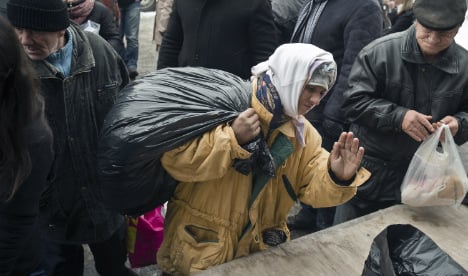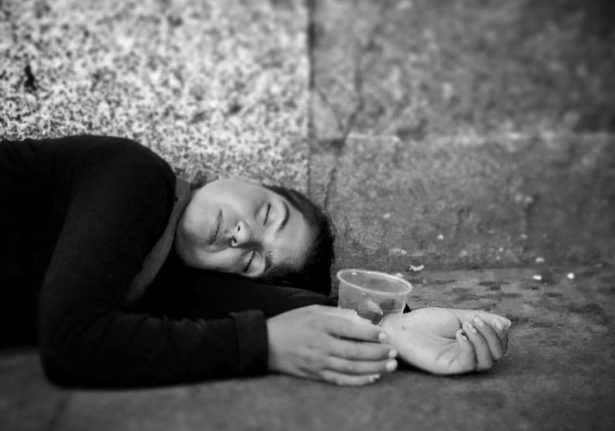The warmth of my down jacket is a welcome embrace as I walk through Stockholm’s cold and dark streets. The bags full of Christmas presents weigh heavy however as I pass by what has become a feature of streets across Sweden in recent years – the sight of the Romanian beggars. Outside supermarkets, liquor stores, pharmacies and on street corners, they sit wrapped in blankets trying to ward off the early winter chill.
I despair when I think about how the Romanian government prioritizes the construction of churches ahead of the welfare of the Romanian people.
I have witnessed with my own eyes the sheer misery from which the beggars lining Stockholm’s streets have fled. Last spring I was part of a delegation together with EU minister Birgitta Ohlsson on a visit to Bucharest. The purpose of our visit was to meet representatives for the Romanian government and to express our wish to make use of EU structural funds to fight poverty.
Impressions gathered from rural Romanian villages remain with me – hovels, mud, and emaciated horses dragging carts. I will never forget Nicoletta who lives in a tidy shack devoid of running water with four young children and a handicapped son. The wood-fire, the only source of heat, is warmed with sticks collected in the woods. There is no money for wood. Meals are almost exclusively cornmeal.
“How can this be part of our European Union” we asked each other in the car on the way home.
Human rights are the foundation of the European Union. In central Bucharest, when we passed by the dictator Ceausescu’s monstrosity of a palace, our Romania colleagues pointed to a building site and said: “Here they are building one of the world’s largest orthodox cathedrals”.
The almost pharaoh-like project was begun in 2010 and is due to be completed within a couple of years. The costs remain undetermined but will be measured in hundreds of millions of euros. French newspaper Le Figaro estimates that the figure is likely to reach a billion euro ($1.2 billion).
In one of Europe’s poorest countries there are resources to build a 125 metre tall cathedral complete with golden arches at the same time as a mother and her four children are forced to live in a shack without water or electricity.
The Romanian state is contributing financially to the cathedral but the exact figure is unknown. According to the BBC the Romanian state hands the church €100 million per annum to pay for clergy salaries and to fund renovation and church construction. New churches are being built across the country.
Politicians are dependent on the support of the clergy in their election campaigns.
We must of course express understanding for the legacy of the communist dictatorship when religion was targeted and cultural heritage neglected. But we should also criticize a situation when a poor EU country prioritizes churches ahead of homes for freezing children. Especially considering the opposition faced by other areas of the Romanian society, such as the LGBTQ community.
According to Eurostat some 40 percent of Romania's population is classified as poor. According to the United Nations, the Roma are the most vulnerable and whose living conditions can be equated to those in sub-Saharan Africa – some of the poorest people worldwide. The political leadership obviously lack the ability, will, and perhaps empathy to take a serious approach to help, despite the availability of EU funds.
Greece was obliged to accept expert help from the rest of the EU in connection with the economic crisis. In Romania there is an ongoing humanitarian crisis which requires a Marshall Plan-like initiative. The EU should demand that Romania accepts teams of international experts for the longer term. This help could extend from social work to housing.
It is unsustainable for millions of EU citizens to be living in despair. If Romania's politicians don't show a genuine desire for change then a discussion needs to be had over the country's future in the union as the Copenhagen criteria for membership are clearly not being met.
The enormous cathedral in Bucharest is devoted to Christ. I am utterly convinced that Jesus the carpenter would prefer that Nicoletta and her children would get to live in a warm house.
Jenny Sonesson
Social worker and former political adviser in the Cabinet Office (Liberal Party)







 Please whitelist us to continue reading.
Please whitelist us to continue reading.
Member comments